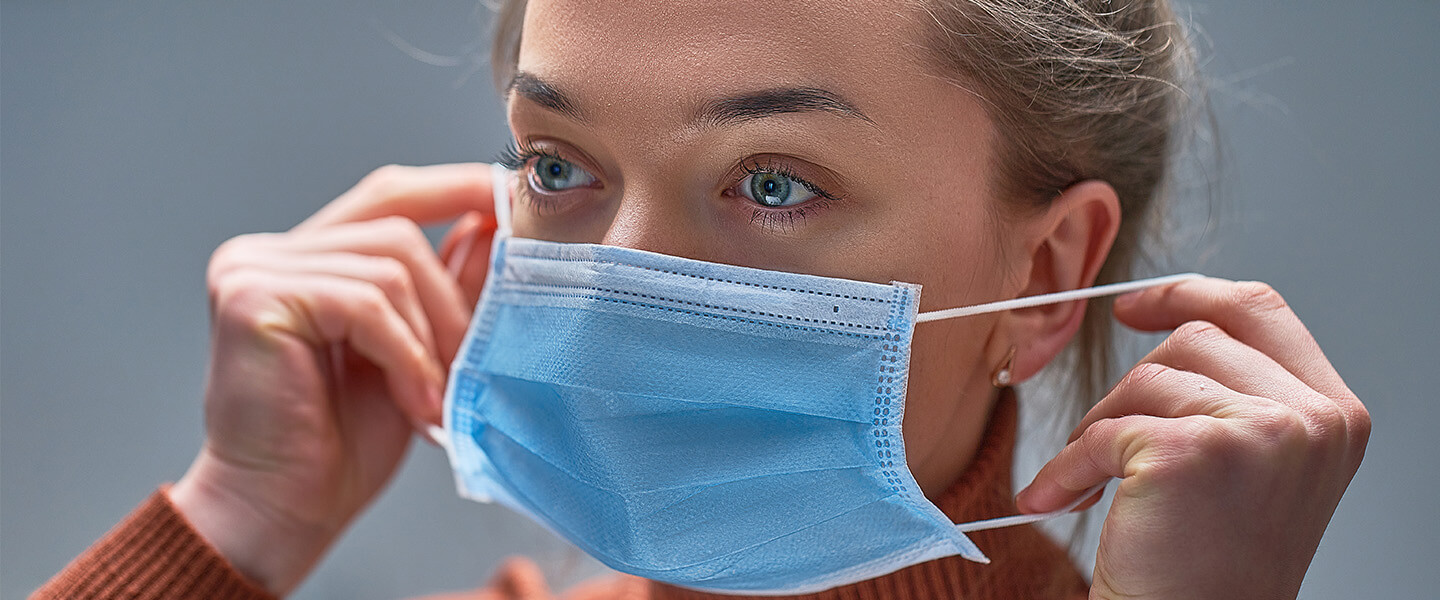Evidence Grows of COVID-19's Complex, Two-Way Relation to Mental Health Disorders
Evidence Grows of COVID-19's Complex, Two-Way Relation to Mental Health Disorders

Scientific evidence continues to accumulate, helping to clarify the nature of the relationship between COVID-19 infection and mental health disorders.
Research studies published during the last year, many of which have involved recipients of BBRF grants and prizes, have made a strong case for the heightened risk that COVID infection poses for individuals who have prior diagnoses of psychiatric disorders. There is evidence that those with schizophrenia and bipolar disorder, in particular, have significantly increased risk of being infected by the COVID virus, and of having poorer outcomes.
Now, newly published evidence appearing in the British Medical Journal provides support for the theory that the relationship is bi-directional: not only does COVID appear to increase risks for those with pre-existing mental disorders. It also appears that being infected with COVID can significantly raise the risk that people without prior mental disorders will develop symptoms of one within the following year.
There is an abundance of evidence that COVID poses an increased health threat to at least some people with pre-existing psychiatric disorders. A study led by BBRF Scientific Council member Nora Volkow, M.D., based on the electronic health records of over 61 million American adults, has found that people with a diagnosis of a mental disorder within the prior 12 months had a significantly increased risk for COVID-19 infection and tended to have worse outcomes than people infected with COVID-19 who did not have a mental disorder.
Donald C. Goff, M.D., a 2009 and 2003 BBRF Independent Investigator, has led a team reporting that people with schizophrenia have about 2.7 times the risk of dying within 45 days after a COVID infection, compared with COVID patients without a psychiatric diagnosis. That study was based on electronic medical records of 26,540 patients treated within the NYU Langone Health System over several months following the outbreak of the pandemic.
Gregory P. Strauss, Ph.D., a 2018 BBRF Young Investigator at the University of Georgia, has led a study revealing that social distancing and isolation stemming from the pandemic caused a significant worsening of negative symptoms (flattened emotions, reduced motivation, difficulty speaking, a disinclination to socialize or seek pleasure) in schizophrenia patients, and to a lesser degree in those at clinically high risk of developing psychosis.
Paul J. Harrison, M.D., FRCPsych, a 2004 BBRF Independent Investigator at Oxford University, UK, has led a team that studied over 273,000 COVID patients to provide a detailed picture of “long COVID”—how common its 9 core symptoms are and who is most likely to experience them. Most commonly reported of all the long-COVID symptoms was depression/anxiety, experienced by 22% of patients within 6 months of diagnosis and 15% 3 to 6 months after diagnosis.
Maura Boldrini, M.D., a 2014 BBRF Independent Investigator and 2006 and 2003 Young Investigator at Columbia University, has co-authored an influential paper suggesting that neuropsychiatric symptoms in COVID patients might be caused by independent brain damage attributable to the viral infection. She and her colleagues described symptoms including cognitive and attention deficits (“brain fog”), anxiety, depression, psychosis, seizures, and suicidal behavior that might be traced to biological factors related to COVID infection. Inflammation in the central nervous system is a likely contributor, they said.
Now a new paper authored by researchers at Washington University, St. Louis and the VA St. Louis Health Care System and appearing the British Medical Journal makes the case that a group of 153,848 people without a psychiatric diagnosis in the two years prior to being infected with COVID and who survived the acute phase of the illness were "at increased risk of an array of incident mental disorders" in the 12-month period following their infection. By "incident disorders" the researchers mean mental disorders that were not present in these individuals prior to COVID infection.
Electronic medical records of the COVID cohort were compared with those of two control groups, one consisting of 5.6 million people who were not infected with COVID but did experience the pandemic, the other of 5.8 million people whose data was compiled prior to the emergence of COVID-19. All the data comes from the VA Health System of the U.S. Department of Veterans Affairs, the largest integrated healthcare system in the nation.
The bottom line of the new study, the researchers said, was that "despite evidence showing that the burden of mental health disorders might have increased among the general population during the COVID-19 pandemic, our results suggested that people with COVID-19 are at even higher risk of [new] mental health disorders than their contemporaries without COVID-19."
The new evidence therefore suggests a possible "bidirectional connection," the researchers noted, "in that mental health disorders might predispose someone to COVID-19, and that COVID-19 itself might lead to adverse mental health manifestations."
The team's VA Health Care System-based study showed increases of risk within 1 year for the following disorders in those who contract COVID-19, relative to uninfected individuals: anxiety disorders: 35% higher; depressive disorders: 39% higher; stress-related disorders: 38% higher; opioid-use disorder 34% higher; other substance-use disorders: 20% higher. Additionally, COVID infection raised the risk of neurocognitive decline 80% and sleep disorders 41%, the team reported. Overall, "the risk of any [new] mental health diagnosis or prescription was increased" by 60% relative to those not infected by COVID.
Commenting on the study, in which he was not involved, Dr. Harrison of Oxford University told the New York Times: “There appears to be a clear excess of mental health diagnoses in the months after COVID,” and “it strengthens the case that there is something about COVID that is leaving people at greater risk of common mental health conditions. . . . It’s not an epidemic of anxiety and depression, fortunately,” Dr. Harrison said. “But it’s not trivial.”
Dr. Boldrini, who also had no part in the new study, told the Times: “It’s striking to me how many times we’ve seen people with these new symptoms with no previous psychiatric history.” She suggested that "in some people, the immune response that is activated to fight against a coronavirus infection may not shut down effectively once the infection is gone, which can fuel inflammation. . . . Inflammatory markers can disrupt the ability of the brain to function in many ways, including the ability of the brain to make serotonin, which is fundamental for mood and sleep."





